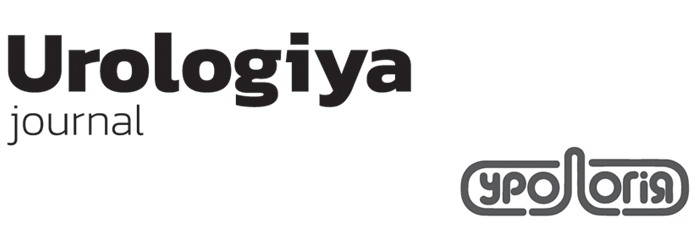O.E. Stakhovsky, A.V. Tymoshenko, O.A. Voilenko, Yu.V. Vitruk, O.A. Kononenko, M.V. Pikul, E.O. Stakhovsky
Aim. Evaluation of results of Mainz-pouch II surgery (MP II) after cystectomy in patients with bladder cancer and controlled urinary diversion.
Materials and methods. Clinical records of 118 patients with invasive bladder cancer were analyzed. The patients were evaluated before surgery under a standardized diagnostic protocol, also urinary continence duration was evaluated with an anal sphincter as one of the potential contraindications to surgery.
Results. Intraoperative complications during MP II occurred in 6 (5%) patients. 29 (24.5%) patients showed complications in the early postoperative period, associated with impaired kidney function, urinary tract infections, anastomotic leak. Late postoperative complications were revealed in 71 (75.5%) patients, resulted in metabolic acidosis 37 (39.3%) and upper urinary tract infection exacerbations as follows: 13 cases of ureteroenteric anastomosis stenosis (13.9%) and 18 of ureteroenteric gas reflux (19.1%). Night incontinence was observed in 3 (3.1%) patients. The average urination frequency during the day and night was 5.1 + 1.1 and 2.0 + 0.5 times, respectively.
Conclusion. The MP II procedure involves a low pressure reservoir, even at large volumes of filling, and the detubularized and reconfigured intestine walls have no coordinated contractions, reducing frequency of ureteroenteric reflux into the kidneys. The main disadvantage of MP II surgery is metabolic acidosis, which may be compensated under outpatient conditions.

